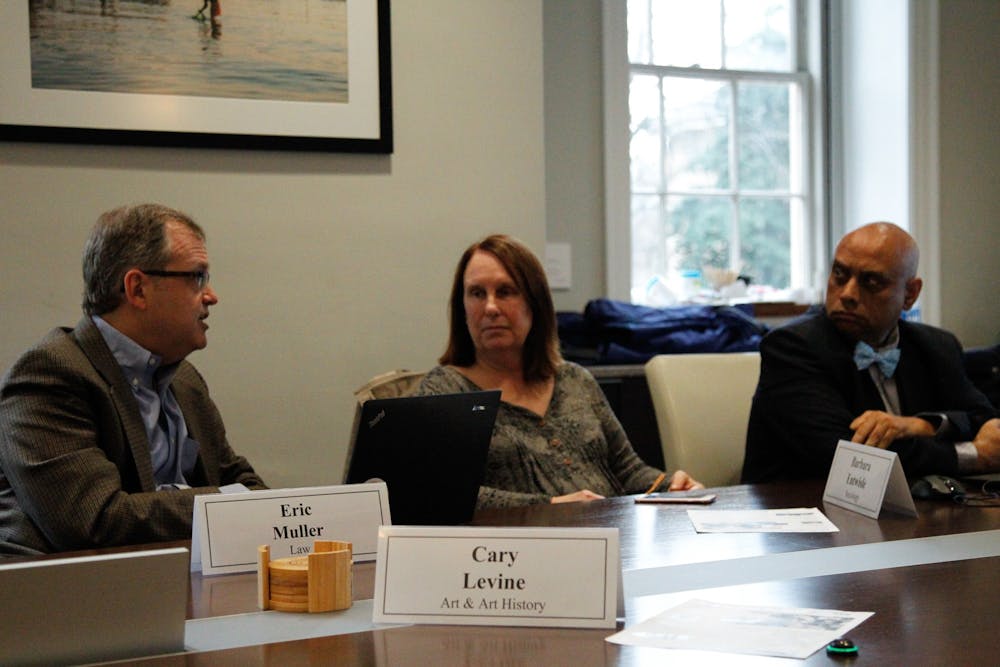The Faculty Executive Committee met Monday afternoon to discuss UNC's strategic plan and the recently-voided Silent Sam settlement, among other topics.
Executive Vice Chancellor and Provost Bob Blouin opened the meeting with a discussion on the recent motion by Judge Allen Baddour to dismiss the settlement between the UNC System and The North Carolina Division Sons of Confederate Veterans Inc.
The settlement originally transferred possession of Silent Sam to the SCV and provided the group with a $2.5 million trust for the care and preservation of the monument. On Feb. 12, Baddour vacated the settlement and dissolved the trust.
Eric Muller, Committee member and a professor in the UNC School of Law, described the shock of the courtroom two weeks ago as Baddour decided against his initial approval of the settlement in November.
“I think the courtroom was sort of stunned to hear the judge reverse himself,” Muller said. “The lawyers spoke for close to an hour, and the judges spoke for about three minutes. This was exceptional from the very first nanosecond of the proceedings.”
Muller asked Blouin about the most appropriate next steps the University should take regarding the Silent Sam monument. Blouin responded that the judge was clear in his decision that the monument should return to the authorities responsible for the initial SCV settlement – the Board of Governors and the UNC Systems office.
“I take it that the Board of Governors would probably like time to reflect and reevaluate, and I guess our position would be to give them as much time as they need,” Blouin said. “I don’t know timing-wise when the Board of Governors would make a judgment as to what the next steps should be. Personally, I think they should be very deliberate and cautious.”
Blouin also brought up the UNC Board of Trustees’ recent official endorsement of Carolina Next: Innovations for Public Good.
Blouin said the voluntary faculty team captains for the initiative have been named. He said the next steps with this project include adding faculty and staff members as team leads to work with the captains, as well as developing annual reports to relay updates on each component of the initiative.




